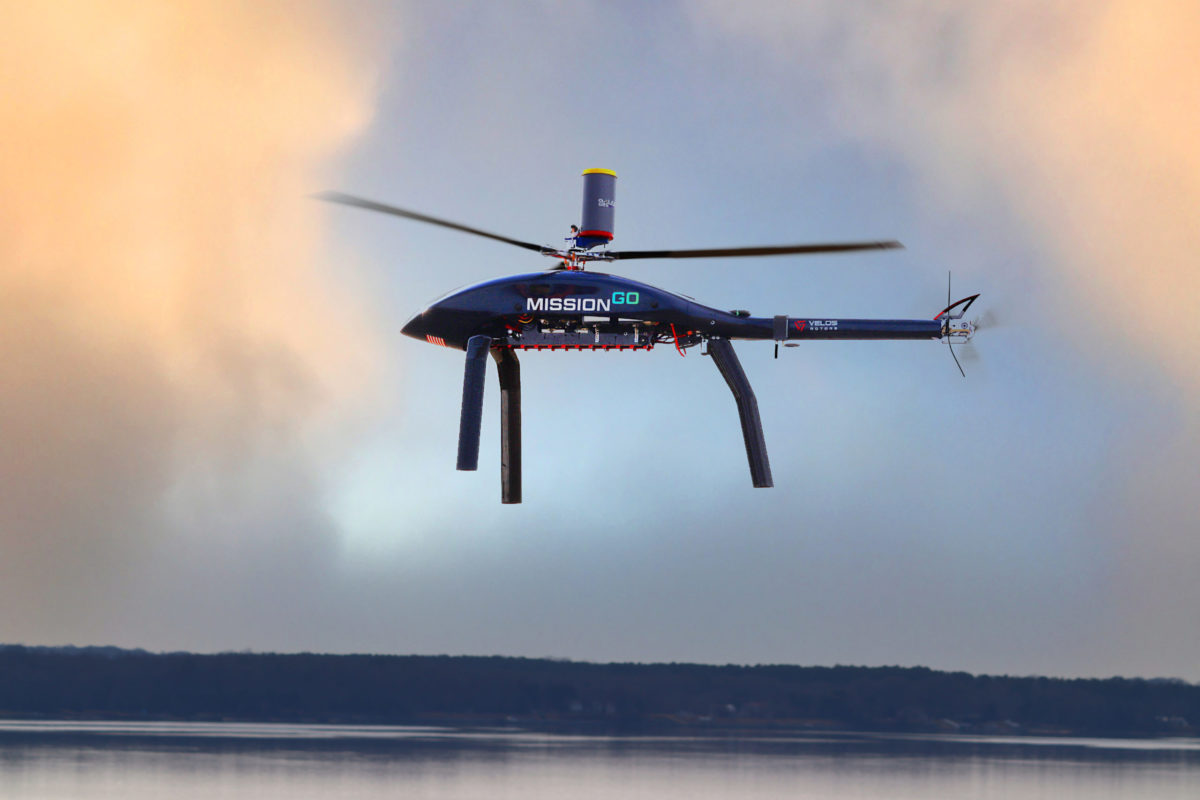New technology can bring change as it moves to wide use. But there is also a need to consider safety and how it interacts with the existing world.
One area where this balance has played out is government regulation, which provides a standardized, third-party approval to ensure that technology is safe and effective in the area it sets out for.
Over the last decade, government regulation has come alongside the emergence of drones and other unmanned aircraft. As drones have gotten more popular, the Federal Aviation Administration has worked to establish regulations around the aircraft themselves, as well as balance uses of the airspace in which they operate. A recent milestone from a Baltimore company offers one such example.
MissionGO Unmanned Systems got a key approval from the FAA’s certification office for its unmanned aircraft that will deliver cargo such as human organs for transplant.
Formally, the FAA approved airworthiness criteria for its aircraft, which is called the MG Velos 100. This ensures that an aircraft is suitable for flight.
It’s part of a process toward an approval called Type certification, which the FAA requires to ensure an aircraft meets safety standards. But MissionGO EVP for UAS Cargo Operations Frank Paskiewicz says it’s a key part. He called it the “long pole in the tent” toward the final approval. Following the airworthiness criteria will be design approval and flight testing.
Under MissionGo’s plans, the MG Velos 100, which Paskiewicz said looks like a smaller version of a traditional helicopter, would fly the medical cargo. This has been demonstrated in test flights over Baltimore and the Las Vegas desert. Eventually, it’ll set up the company to fly routes that go through airspace, over people and, as more technology is added, beyond the line of sight.
“Our goal is to be certified to fly precious medical cargo from Point A to Point B with even more speed and efficiency than before, saving time that could literally save lives,” said Paskiewicz, who joined MissionGO earlier this month after a 28-year career as an FAA executive. “Type Certification will be a major milestone in proving we can conduct this important mission in a safe and reliable manner.”
MissionGO joins 10 other companies that previously had such airworthiness criteria accepted, including names like Amazon and Zipline. It’s an area of regulation that is emerging as companies are developing capabilities for unmanned delivery.
MissionGO, which was named to Technical.ly’s RealLIST Startups 2021, shows that work happening in Baltimore. The Canton-based team is one of several companies working on unmanned flight that were founded by investor Scott Plank and retired U.S. Navy commander Anthony Pucciarella. And like much of the progress that’s happening around unmanned flight of organs for transplant in Baltimore, this effort involved partnership. The company teamed with Velos Rotors, which supplied components. Fleet management and operations software from fellow Baltimore UAV-oriented company AlarisPro allowed MissionGO to collect and analyze the data needed for certification.
Paskiewicz points out that MissionGO is unique in that it is leading three stages of the aircraft’s life: design, manufacturing and operation. Typically there would be one company for each of those processes.
Per Paskiewicz, the FAA had a name for it: “the gold trifecta.”







